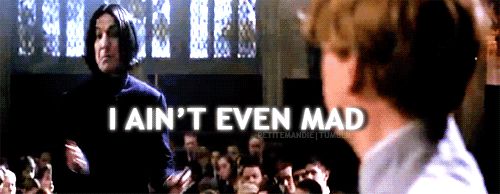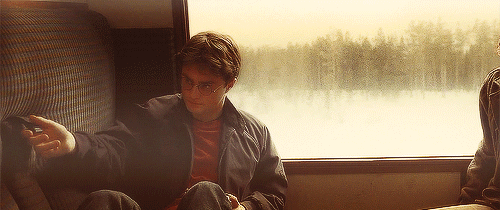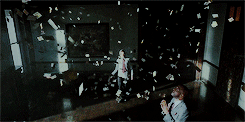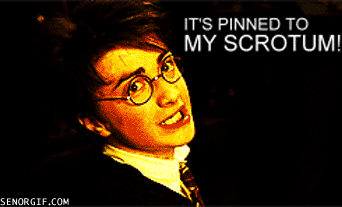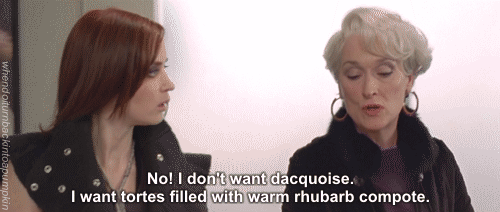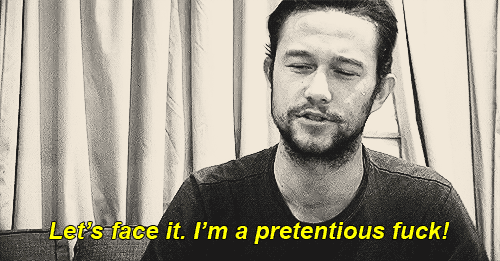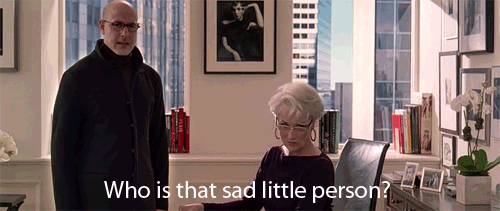What do you think?
Rate this book


402 pages, Hardcover
First published August 11, 2009
I've also written two novels for children: The Silver Arrow, which the New York Times, Wall Street Journal, People magazine, Apple and Amazon all put on their best-of-the-year lists, and its sequel The Golden Swift. I do some journalist and screenwriting too.
I grew up in Lexington, Massachusetts, the son of two English professors. My twin brother Austin is a writer and game designer, and my older sister Sheba is an artist. Sometimes I live in Brooklyn, New York, other times in Sydney, Australia, where my wife is from. I have three kids and a somehow steadily increasing number of cats.
'You can't just decide to be happy.'The answer to this, as far as Quentin Coldwater is concerned, is a resounding 'YES!' At any stage of his life. He makes Holden Caulfield look like a bundle of sunshine. He makes Charlie Brown resemble an embodiment of optimism and positivity. Eeyore the Donkey is brimming with life force compared to our perpetually unhappy hero.
'No, you can't. But you can sure as hell decide to be miserable. Is that what you want?'
'...You couldn't have everything. Or at least the available evidence pointed overwhelmingly to that conclusion.'
Not only will he always think of a cup as being half-empty, but he will drive himself crazy wondering who the hell drank half of it to make it so. Hand him his deepest dream on a silver platter - and five minutes later he will be whining in a decidedly disillusioned fashion about how it fails to make him happy. Disillusionment and dissatisfaction are how he operates.
In 'The Magicians' Lev Grossman goes against the popular device of literature - the allure of wish fulfillment, the deep-rooted belief that once you find that secret place in life where you belong things will magically be alright and you will be happy. (*)
'All of it just confirmed his belief that his real life, the life he should be living, had been mislaid through some clerical error by the cosmic bureaucracy. This couldn't be it. It had been diverted somewhere else, to somebody else, and he'd been issued this shitty substitute faux life instead.'
(*) Granted, he goes against the literary mainstream while at the same time using the obviously commercially successful formula of a young protagonist with a newly found magical ability who suddenly finds himself in an equivalent of a British boarding school (well, in this case, a college. In Upstate New York. But it's still a British boarding school, really).Anyhow, unlike what we are supposed to expect, Quentin, miserable and disillusioned in the quasi-grown-up way that quite a few teens seem to be, does not find happiness in his unexpected admission to Brakebills, a magical college. Apparently he learns that - suprise! - you cannot just be handed happiness, that you actually need to put some effort into it, and that you can easily poison anything, even a fairy-tale, if you approach anything from the vantage point of pseudo-sophisticated negativity.
So it seems that Grossman tries to get out of mainstream while firmly staying in the commercially successful mainstream. Mmmmm-kay.
'Every ambition he'd ever had in his life had been realized the day he was admitted to Brakebills, and he was struggling to formulate a new one with any kind of practical specificity.'Actually, the aura of overly disillusioned ennui-infused pseudo-sophistication in the faux-adult way (the way that tends to overstate almost explicitly that it's SO NOT Harry Potter and the like) permeates this entire book, getting in the way of pacing, character development and ultimately many readers' enjoyment.

All this while Quentin, despite his apparently staggering intellect, acts like a frustratingly clueless idiot and makes you want to reach into the book and shake some sense into him. And all of this just to see him come to even greater depths of self-pity and annoying in their platitude 'revelations':
'He wasn't in a safe little story where wrongs were automatically righted; he was still in the real world, where bad bitter things happened for no reason, and people paid for things that weren't their fault.'And with this deep realization, Quentin gets this timeless piece of advice that summarizes the entire point of this story in addition to the message that things tend to suck quite badly (insert sarcasm here if you'd like):
'You found out, didn't you? There's no getting away from yourself. Not even in Fillory.'Hey, I do not mind reading about the characters who are childish and stupid and very self-centered. What I expect is that in a series of events (a.k.a. plot) they will actually grow and change and learn something - something to make me feel that it was worth reading the book for. Even Holden Caulfield seems to change and grow up a bit, despite his uber-teenageness.

'For just one second, look at your life and see how perfect it is. Stop looking for the next secret door that is going to lead you to your real life. Stop waiting. This is it: there's nothing else. It's here, and you'd better decide to enjoy it or you're going to be miserable wherever you go, for the rest of your life, forever.'
“Are you smart?”
There was no non-embarrassing answer to this.
“I guess.”
“Don’t worry about it, everybody here is. If they even brought you in for the Exam you were the smartest person in your school, teachers included.”
If you will, for just one second, look at your life and see how perfect it is. Stop looking for the next secret door that is going to lead you to your real life. Stop waiting. This is it: there’s nothing else. It’s here, and you’d better decide to enjoy it or you’re going to be miserable wherever you go, for the rest of your life, forever.”Brakebills is like Harry Potter for assholes, and to that, I say bravo because that's a fucking fantastic thing. Yes, Harry Potter was a pretty dark series by its end, but it started as a children's tale. The characters are admirable. Brave. Courageous. They are imperfect, but they're often models, paragons. Real life isn't like that. Real people are jerks, and, let's admit it, we'll do anything to get ahead. We lie. We cheat. We steal. This is the American dream, and this is what the (American) characters in this book represent. The main character in this book is a depressed, over-analytical little shit and that's just fine, because I'm a glass-half-empty kind of person, and he resonates with me.
“You can’t just decide to be happy.”
“No, you can’t. But you can sure as hell decide to be miserable. Is that what you want? Do you want to be the asshole who went to Fillory and was miserable there? Even in Fillory? Because that’s who you are right now."
Suppose it really was a school for magic. Was it any good? What if he’d stumbled into some third-tier magic college by accident? He had to think practically. He didn’t want to be committing himself to some community college of sorcery when he could have Magic Harvard or whatever.Skepticism! Yeah!
"Are you smart?”There's no Harry and Ron and Hermione here. There is friendship, yes, but there's always a spirit of competition here, because they're all the best striving to be the best among the best.
There was no non-embarrassing answer to this.
“I guess.”
“Don’t worry about it, everybody here is. If they even brought you in for the Exam you were the smartest person in your school, teachers included. Everyone here was the cleverest little monkey in his or her particular tree. Except now we’re all in one tree together. It can be a shock. Not enough coconuts to go round. You’ll be dealing with your equals for the first time in your life, and your betters. You won’t like it.
They were quiet and intense, always eyeing each other assessingly, as if they were trying to figure out who—if it came right down to it—would take out who in an intellectual death match. They didn’t congregate overmuch—they were always civil but rarely warm. They were used to competing and used to winning. In other words, they were like Quentin, and Quentin wasn’t used to being around people like himself.There's not much playing, a lot of studying. Friendship does not come easily. Harry met Ron and bonded on the Hogwarts Express. It's a much bumpier road to friendship here.
“Listen to me carefully,” Fogg was saying. “Most people are blind to magic. They move through a blank and empty world. They’re bored with their lives, and there’s nothing they can do about it. They’re eaten alive by longing, and they’re dead before they die.The magical system in ths book is mechanical, methodical. There are no muttered phrases, no cute names for spells. Instead of a visible villain like Voldemort, the evil, the terror in this book are much less visible, but by no means less effective. I've rarely read a phrase in a book that has more accurately described a feeling of a panic attack.
“But you live in the magical world, and it’s a great gift. And if you want to get killed here, you’ll find plenty of opportunities without killing each other.”
There was something odd about the man’s appearance—Quentin couldn’t seem to make out his face. For a second he couldn’t figure out why, and then he realized it was because there was a small leafy branch in front of it that partially obscured his features. The branch came from nowhere. It was attached to nothing. It just hung there in front of the man’s face.I know there are a lot of people who hated this book. 3.6 is a pretty crap rating for a book of this popularity, but I loved it, and here's why. The main character is smart, he wants to get ahead, he is pessimistic, he is a skeptic. Why is this a bad thing? What's wong with looking at everything through
Then Professor March stopped speaking and froze in place.
Alice had stopped, too. The room was silent. A chair creaked. Quentin couldn’t move either. There was nothing restraining him, but the line between his brain and his body had been cut.
He circled Professor March. There was something strange about the way he moved, something too fluid about his gait. When he walked into the light, Quentin saw that he wasn’t quite human, or if he had been once he wasn’t anymore. Below the cuffs of his white shirt his hands had three or four too many fingers.
Fifteen minutes crawled by, then half an hour. Quentin couldn’t turn his head, and the man moved in and out of his field of view. He puttered with Professor March’s equipment. He toured the auditorium. He took out a knife and pared his fingernails. Objects stirred and shifted restlessly in place whenever he walked too near them. He picked up an iron rod from March’s demonstration table and bent it like a piece of licorice.
Quentin’s fear came and went and came back in huge sweating rushes, crashing waves. He was sure something very bad was happening, it just wasn’t clear yet exactly what.



